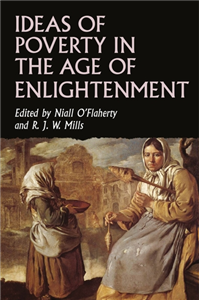Ideas of poverty in the Age of Enlightenment
by Niall O’Flaherty, Robin Mills
Description
More Information
Rights Information
Albania, Algeria, Angola, Argentina, Armenia, Australia, Austria, Bahrain, Belgium, Belize, Benin, Bolivia, Bosnia and Herzegovina, Botswana, Brazil, Bulgaria, Burkina Faso, Burundi, Cameroon, Canada, Cape Verde, Central African Republic, Chad, Chile, China, Colombia, Comoros, Congo [DRC], Congo, Republic of the, Costa Rica, Ivory Coast, Croatia, Czech Republic, Denmark, Djibouti, Ecuador, Egypt, El Salvador, Equatorial Guinea, Eritrea, Estonia, Ethiopia, Faroe Islands, Finland, France, French Guiana, Gabon, Gambia, Georgia, Germany, Ghana, Greece, Guatemala, Guinea, Guinea-Bissau, Guyana, Honduras, Hongkong, Hungary, Iceland, India, Indonesia, Iran, Iraq, Ireland, Israel, Italy, Japan, Jordan, Kazakhstan, Kenya, Kuwait, Latvia, Lebanon, Lesotho, Liberia, Libya, Lithuania, Luxembourg, Macau, China, Macedonia [FYROM], Madagascar, Malawi, Malaysia, Mali, Malta, Mauritania, Mauritius, Mayotte, Mexico, Mongolia, Montenegro, Morocco, Mozambique, Namibia, Netherlands, New Zealand, Nicaragua, Niger, Nigeria, Norway, Oman, Pakistan, Panama, Paraguay, Peru, Philippines, Poland, Portugal, Puerto Rico, Qatar, Reunion, Romania, Russia, Rwanda, Saint Helena, Sao Tome and Principe, Saudi Arabia, Senegal, Serbia, Seychelles, Sierra Leone, Singapore, Slovakia, Slovenia, Somalia, South Africa, South Korea, Spain, Sri Lanka, Sudan, Suriname, Swaziland, Sweden, Switzerland, Syria, Taiwan, Tanzania, Thailand, Timor-Leste, Togo, Tokelau, Tunisia, Turkey, Uganda, Ukraine, United Arab Emirates, United Kingdom, United States, Uruguay, Venezuela, Vietnam, Western Sahara, Yemen, Zambia, Zimbabwe, South Sudan, Cyprus, Palestine, Bangladesh, Cambodia, Liechtenstein, Azerbaijan, Jamaica, Kyrgyzstan, Dominican Republic, Myanmar, Monaco
Endorsements
Although poverty in the eighteenth century has long been an object of focus for social historians, it has figured only marginally in the intellectual history of the period. This is because it has been assumed that the existence of poverty was rarely problematized before the transformative decade of the 1790s. Yet because the theme of poverty played important roles in many critical issues in European history, it was central to some of the key debates in Enlightenment political thought throughout the period, including the controversies about sovereignty and representation, public and private charity, as well as questions relating to crime and punishment. Indeed, leading thinkers like the Scottish political economist Adam Smith, the French Physiocrats and the Milanese jurist Cesare Beccaria had come to see the fate of the poor as an urgent political question in the middle decades of the century. This book examines some of the most important contributions to these debates, while also ranging beyond the canonical Enlightenment thinkers, to investigate how poverty was conceptualised in the wider intellectual culture, as politicians, administrators and pamphlet writers grappled with the issue. The volume also revisits the question of why and how many governments and men of letters began to address poverty as a social problem in the 1790s. It asks how far the drive to reduce or eliminate want was already underway before the French Revolution, as well as challenging the binary characterisation of debates in the period as a struggle between humanitarian radicals and cold-hearted reactionaries.
Reviews
Although poverty in the eighteenth century has long been an object of focus for social historians, it has figured only marginally in the intellectual history of the period. This is because it has been assumed that the existence of poverty was rarely problematized before the transformative decade of the 1790s. Yet because the theme of poverty played important roles in many critical issues in European history, it was central to some of the key debates in Enlightenment political thought throughout the period, including the controversies about sovereignty and representation, public and private charity, as well as questions relating to crime and punishment. Indeed, leading thinkers like the Scottish political economist Adam Smith, the French Physiocrats and the Milanese jurist Cesare Beccaria had come to see the fate of the poor as an urgent political question in the middle decades of the century. This book examines some of the most important contributions to these debates, while also ranging beyond the canonical Enlightenment thinkers, to investigate how poverty was conceptualised in the wider intellectual culture, as politicians, administrators and pamphlet writers grappled with the issue. The volume also revisits the question of why and how many governments and men of letters began to address poverty as a social problem in the 1790s. It asks how far the drive to reduce or eliminate want was already underway before the French Revolution, as well as challenging the binary characterisation of debates in the period as a struggle between humanitarian radicals and cold-hearted reactionaries.
Author Biography
Niall O'Flaherty is Senior Lecturer in the History of European Political Thought at King's College London R. J. W. Mills is an Honorary Research Fellow in History at the Institute of Intellectual History, University of St Andrews
Manchester University Press
Manchester University Press is a leading UK publisher known for excellent research in the humanities and social sciences.
View all titlesBibliographic Information
- Publisher Manchester University Press
- Publication Date April 2024
- Orginal LanguageEnglish
- ISBN/Identifier 9781526166777 / 1526166771
- Publication Country or regionUnited Kingdom
- FormatPrint PDF
- Pages296
- ReadershipGeneral/trade; College/higher education; Professional and scholarly
- Publish StatusPublished
- Dimensions234 X 156 mm
- Biblio NotesDerived from Proprietary 5542
- SeriesStudies in Early Modern European History
- Reference Code14621
Manchester University Press has chosen to review this offer before it proceeds.
You will receive an email update that will bring you back to complete the process.
You can also check the status in the My Offers area

Please wait while the payment is being prepared.
Do not close this window.



